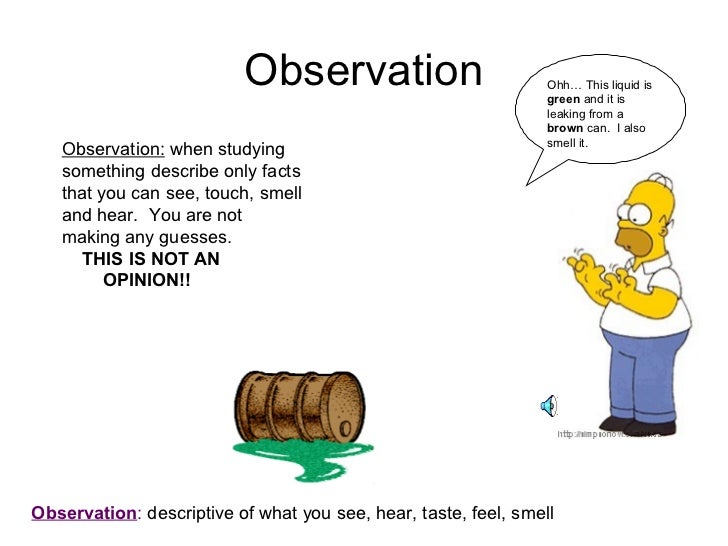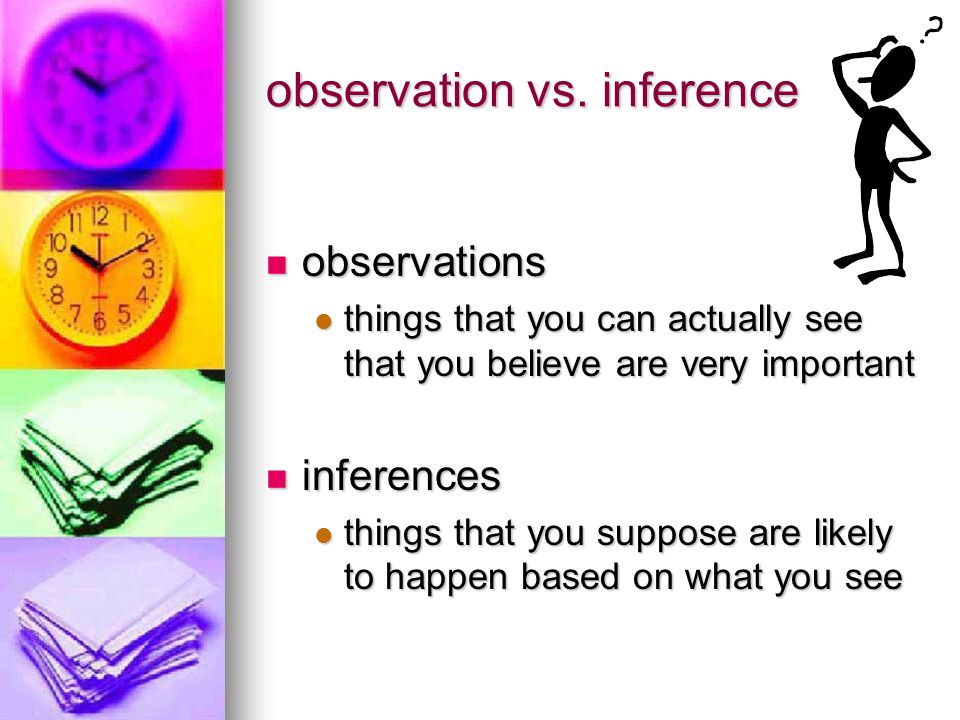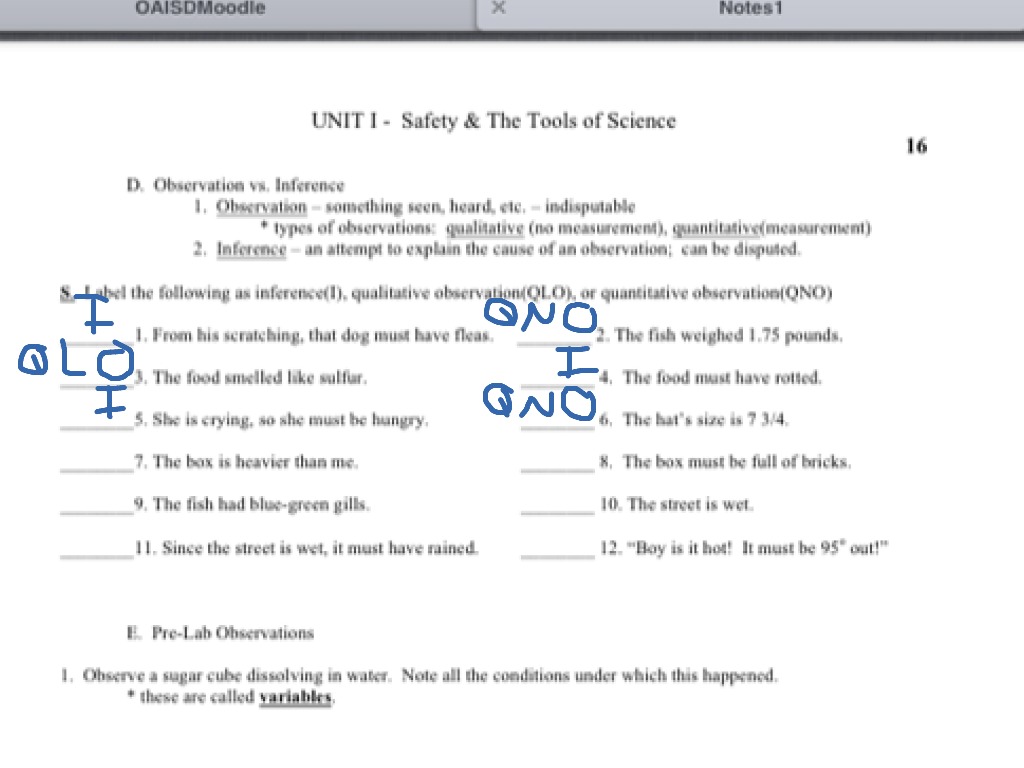

Here, observations relate to the act of monitoring things (units, persons, objects, or anything else) by using our senses. In statistics, we can see the expressions observation and inferences used frequently, also in the GED exam.

Observations and Inferences in Statistics Observations are what you notice or perceive, while inferences are assumptions or explanations of what you have seen or perceived.

So making an inference has to do with deriving rational conclusions from circumstances or facts during observations. So we can say that observations are objective while inferences are subjective. Inferences are things related to events or persons you think or decide about after you have observed them. So let’s take a closer look at what observations and inferences are and the difference between the two.Ī good explanation would be that, again, observations are related to things you can sense: see, hear, smell, taste, or touch. The GED exam (GED is the acronym for General Education Development) requires you to understand the difference between the two. We are inferring! The difference between Observations and Inferences When looking at animals with fur, we may think or assume that they may live in colder climates as the fur will protect them from snow and low temperatures. If we would state that an animal can hear very well because of its large ears or can hide well from its prey due to its camouflage, we are assuming that to be so. Understanding this is key to being successful on the GED Language Arts subtest! Examples of Inferences They are factual and are not open to interpretation. We can see that some animals have fur or whiskers, while some other animals come with beautiful golden color or are white underneath. We can see, for example, that some animals have four legs while others have, for example, big ears. These are factual things not based on assumptions or guesses. Observations are things we can see, hear, and so on. These are educated guesses or assumptions. Inference – When we make guesses or assumptions based on evidence from observations or from prior knowledge, we can make inferences. That’s when we can make observations based on realities. When we can hear, smell, see, touch, or taste things, we know those things are real. Observation – When we can clearly identify things by using our five senses, we speak of observation. This is actually an important part of scientific processes, and it is key that you understand the differences between making an observation and an inference clearly so you can attain good scores on the GED exam. So let’s take a closer look at how we can observe a number of objects and then make inferences.


 0 kommentar(er)
0 kommentar(er)
